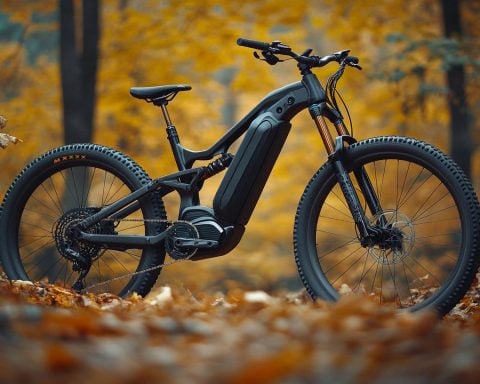Michigan is poised to bring about a transformative change in outdoor cycling by allowing electric bikes on state park trails. The Michigan Department of Natural Resources (DNR) will present a new land use order to the Natural Resources Commission, aiming to make cycling more inclusive and accessible to a wider range of people.
Under the proposed order, certain classes of e-bikes would be permitted on the trails. Class 1 e-bikes, which are pedal-assisted and can reach speeds up to 20 mph, will be allowed on dirt trails. Class 2 e-bikes, equipped with a throttle and offering the same speed capacity as Class 1, will be authorized for both paved and unpaved trails but only with the state’s permission. Individuals with mobility impairments will be permitted to use Class 2 e-bikes on state park trails, provided they obtain an annual land-use permit from the DNR.
The DNR’s objective is to enhance accessibility and create an avenue for individuals with physical limitations, older adults, and anyone seeking assistance during their biking experience. By incorporating e-bikes that require pedaling (Class 1), the health benefits associated with cycling remain intact.
The decision to allow electric bikes on state park trails has raised concerns about safety and potential damage to trail surfaces. However, the DNR points to the experiences of other states and municipalities that have already expanded access to e-bikes, noting that few issues have been documented as a result. Furthermore, the DNR asserts that e-bikes will not cause more harm to trail surfaces than traditional mountain bikes and other trail users.
If the land use order is approved, it could be implemented as early as mid-July. The DNR plans to closely monitor the impact of e-bike usage on natural trails for a year; in the event of any negative impacts, the order will be rescinded. This progressive step has the potential to revolutionize outdoor cycling in Michigan, fostering inclusivity and providing a thrilling experience for a broader range of enthusiasts.
The introduction of electric bikes on state park trails in Michigan reflects a larger trend in the outdoor cycling industry. Electric bikes, also known as e-bikes, are becoming increasingly popular as a form of transportation and recreation. These bikes are equipped with a battery-powered motor that assists with pedaling, allowing riders to travel longer distances and tackle challenging terrains with ease.
The market for electric bikes has been steadily growing in recent years. According to a report by Grand View Research, the global e-bike market was valued at $15.42 billion in 2020 and is projected to reach $23.83 billion by 2025, growing at a compound annual growth rate (CAGR) of 9.7% during the forecast period. The increasing demand for eco-friendly transportation options, coupled with advancements in battery technology, is driving the growth of the e-bike market.
Allowing electric bikes on state park trails can attract a broader range of cycling enthusiasts, including individuals with physical limitations and older adults. This move not only promotes inclusivity but also provides an opportunity for recreational activities and outdoor exercise for a wider audience.
However, concerns have been raised about the potential safety issues and damage to trail surfaces that may arise from the introduction of e-bikes. Critics argue that the increased speed and power of e-bikes may pose a risk to other trail users, particularly pedestrians and traditional cyclists. Additionally, the weight and design of e-bikes could potentially cause more damage to trail surfaces compared to traditional mountain bikes.
To address these concerns, the Michigan Department of Natural Resources (DNR) plans to closely monitor the impact of e-bike usage on state park trails for a year following the implementation of the land use order. If any negative impacts are observed, the order can be rescinded. The DNR also points to the experiences of other states and municipalities that have already allowed e-bikes on trails, noting that few issues have been reported as a result.
Overall, the decision to allow electric bikes on state park trails in Michigan represents a progressive step towards making outdoor cycling more accessible and inclusive. It offers a thrilling experience for a broader range of enthusiasts while preserving the health benefits associated with cycling. As the e-bike market continues to grow, it is likely that more jurisdictions will consider similar measures to accommodate this emerging trend in the cycling industry.
For more information about the global e-bike market, you can visit Grand View Research.

















